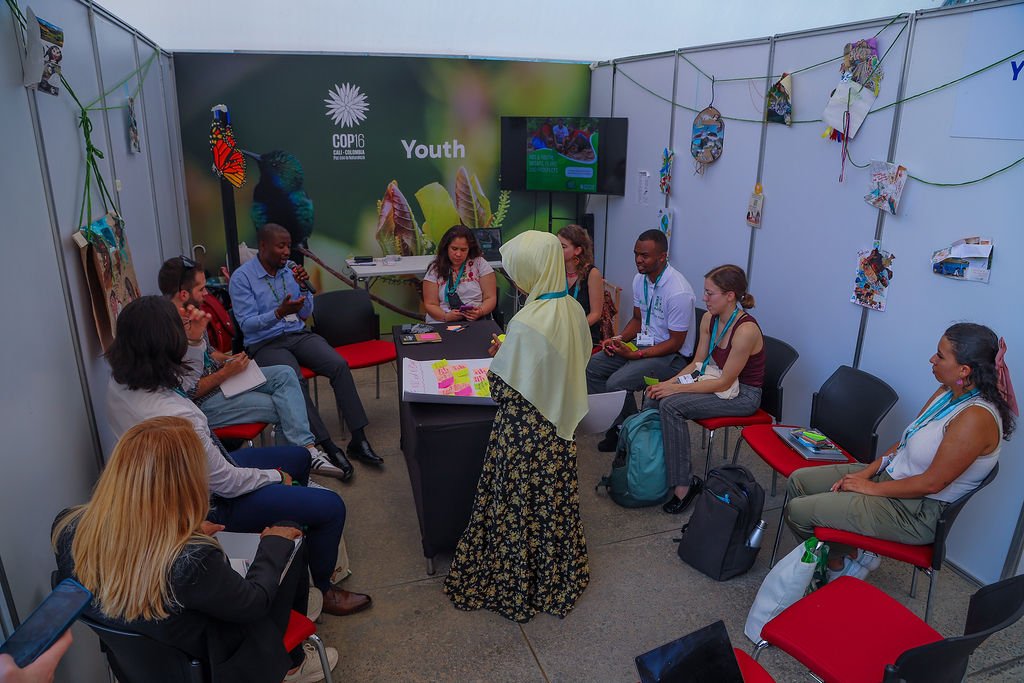It has been one month since COP26. It is sometimes hard to grasp how quickly COP rushes up, and then past, us. Since we returned to our homes, we have been taking time to share, download, debrief, and reflect together as a team and individually. And now we want to share with you!
Canada, it’s time to center equity at COP26
NEW Special Call for Stories: Vulnerability, Loss & Resilience
We are looking for personal narratives that focus on intersectional vulnerability, illustrate solutions related to vulnerability, loss & resilience, and highlight youth stories from climate-vulnerable & biodiversity-rich communities.
Submit between July 16 and August 8 for your chance to win one of four prizes!
National Indigenous History Month & Canada’s Indian Residential School Systems
In Canada during the month of June, not only do we celebrate pride month, but we also celebrate National Indigenous History Month. Celebrating June in this way began in 2009, after a unanimous motion passed by the House of Commons. Normally it is a time to celebrate the “history, heritage and diversity” of First Nations, Inuit, and Metis peoples in Canada. However, this year's celebration has been stained with sadness for Indigenous People across Canada after the news released Thursday, May 27th of 215 children’s bodies found beneath the grounds of the Kamloops Indian Residential School.
Colombia protests for democracy: understanding its connection with nature & how to support
The anti-government protests in Colombia started on April 28th and are now entering their 3rd week. It all started with the announcement of an unpopular tax reform by President Ivan Duque. The law would drastically affect the working class, expanding taxes to citizens, business owners, food and sales. After an incredibly challenging year for many due to COVID-19, the demonstrations were huge. On May 2nd, after 5 days of violence in the streets across the country…
Reflections from the IUCN Global Youth Summit: Nature-based Solutions for People, for Justice and for Nature
People are part of the nature, and unlikely the common speech says, not all people are responsible for the climate and biodiversity crisis the world is facing! There’s actually people who have always protected and lived in harmony with nature, those people are Indigenous, local, Quilombola communities and other groups who understand the importance of nature…
Join Sarah at the 2021 UN Permanent Forum on Indigenous Issues (UNPFII)!
Being labelled as an educational forum for YDC, I knew incorporating Youth4Nature would be instrumental in my own participation. As an Indigenous youth, education is a two way exchange where both myself and the organizations I work with must benefit. My work at Youth4Nature has been focused on Indigenous engagement to both honour my roots, but also to help create better spaces for Indigenous youth to share how important nature and climate are to us as Indigenous Peoples. Being young…
Examples of communities reliant on forest ecosystems
LESSONS FROM THE WEBINAR ON POLLINATORS FOR OUR SURVIVAL IN AFRICA
Venezuela: Mining impacts on Indigenous Communities
Increasingly, the traditional territories of Indigenous communities in Venezuela have become areas where Colombian Guerrillas, illegal miners and Venezuelan military forces openly cooperate to mine, coercing them to destroy their own ancestral lands, resulting in a large migration to neighboring countries, most notably Brazil. And yes, you read it right. The crises that Venezuelan Indigenous communities are facing are so devastating that they have no option but to go to the very same country that is all over main stream media because of the environmental crisis.
RECAP: FOR FORESTS’ SAKE
As part of Global Landscape Forum’s Biodiversity Conference in November 2020, Y4N Regional Director for Asia and the Pacific, Vinamra Mathur, joined forest experts from around the world for a panel titled: For forests’ sake: Transforming extractive industries and infrastructure to achieve NYDF Goal 3. The panel addressed the urgent need for…
















